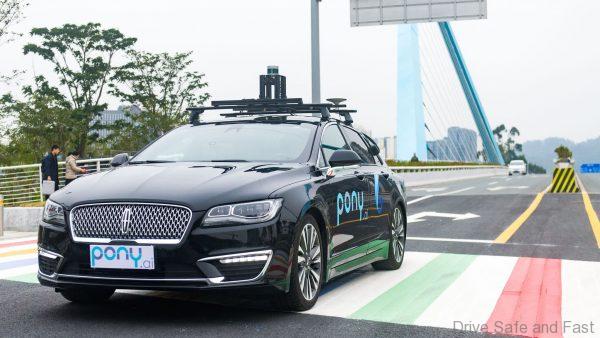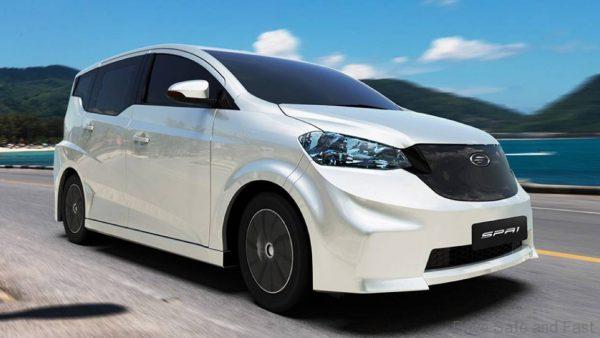NAP 2019 Is Leaning Hard Towards Local Assembly Of EV’s
Electric Vehicles, Autonomous Drive & EV Battery Production is the biggest news.
We have just had a sneak peek at the National Automotive Policy (NAP) 2019 which is now 13 months delayed. Yes, the various departments involved in producing this new National Automotive Policy has looked into all the issues that have been forgotten in the previous NAP and this new document shows the governments direction looking brightly at electric vehicles (EV), charging station infrastructure and also autonomous driving technology with the development of all these to be executed in our country.
Yes, Malaysia wants to be a hub for the region for Autonomous Driving Technology with the move to have a designated area in the country where full on road tests can be conducted and local software and engineering companies can get involved in this project. (There is already a city in China, Guangzhou where Chinese car brand Pony-ai is testing its autonomous taxi service car project. In this city of nearly 15 million people this project is already in full swing. We are late to the party).

The NAP 2019 also suggests a strong move towards electric vehicle production, including the manufacture of electric vehicle batteries which is lithium battery technology. In December last year, 2019, the Indonesia government announced that they were aiming to start making lithium batteries for use in electric vehicles in 2023, alongside plants that are already slated to produce chemicals used in the batteries, according to the minister who oversees the energy and mining ministry.
Coordinating Minister for Maritime and Investment Affairs Luhut Pandjaitan said he wanted investors to start putting money into plants to make batteries alongside the plants that will soon be producing battery chemicals extracted from nickel ore. Indonesia currently holds almost a quarter of global nickel reserves, valued today at about USD350 billion and there is a Indonesian government ban on ore exports. So, battery manufacturers will have to set up factories in Indonesia to fuel the rising global EV demand.
The NAP 2019 is also pushing for the full production of Electric Vehicles in Malaysia with the use of local vendors and expertise. Last week, January 11th 2020, Thailand announced that two large car manufacturers were about to start EV production in Thailand. The Thailand EV scheme was launched by the Board of Investment (BoI) in March 2017 to open investment applications from car makers. Eligible EVs are hybrid, plug-in hybrid and battery versions. A total of 13 companies were granted EV privileges, including Toyota, Honda, Nissan, Mazda, Mercedes-Benz, BMW, SAIC Motor-CP, FOMM, Mitsubishi and Mine Mobility.
In July 2019, BMW Group Thailand launched the local assembly lines at the DRÄXLMAIER Group plant. The high-voltage battery assembly plant is assembling both battery modules and the battery itself. Final batteries will then be transported to Plant Rayong for the production of the entire range of BMW 5 Series Plug-in Hybrid Vehicles. Since 2017, BMW Group Manufacturing Thailand has assembled four BMW plug-in hybrids at Amata City Industrial Estate, Rayong province.




In June 2019, Energy Absolute, Thailand’s second-largest electricity generating company by market capitalization, unveiled its Mine Mobility passenger EV at the Bangkok Motor Show and immediately received more than 4,500 orders. The car is priced at about 1.2 million baht (USD38,000), cheaper than a comparable Nissan Leaf or Kia Soul EV.
This all new electric car will head out on to new owners just as EV showrooms start getting crowded with foreign models.




In August 2019, Mercedes Benz announced that it will team up with Thailand’s lead science agency to test electric vehicle (EV) and battery technology, and transfer the knowledge to Thailand.
“Demand for EVs in Thailand is increasing,” said Andreas Lettner chief executive of Mercedes-Benz Manufacturing Thailand. “Mercedes-Benz is committed to its local manufacturing operations to be ready for electric mobility, especially via battery EVs.”
Narong Sirilertworakul, President of the National Science and Technology Development Agency (NSTDA), said the investment by Mercedes would raise the level of Thailand’s auto-tech sector.
“We hope to develop a production base for batteries in Thailand to align with international quality standards,” Narong said.
Mercedes and the NSTDA appointed PTEC (Electrical and Electronic Products Testing Center) as the laboratory that will test batteries for plug-in hybrid EVs. Mercedes expects that the lab will be up and running for enhanced product validation testing this year.
The lab will be the first EV battery testing facility in Thailand. The selection is part of efforts to establish the infrastructure needed to support a higher-technology automotive industry in Thailand. Also, on the drawing board for Mercedes and the NSTDAS are plans to create an autonomous vehicle testing lab.
Meanwhile, Mitsubishi Motors chose Thailand the following week as the first country outside Japan, where it will make hybrid electric vehicles. Japan’s Mitsubishi Motors said it intends to produce hybrid EVs in Thailand by 2021. The company will invest USD92 million in its factory in Chonburi province on the Eastern Seaboard for that purpose.
The announcement is a strong vote of confidence in Thailand. The Chonburi plant will be the first to produce Mitsubishi Outlander plug-in hybrid EVs outside of Japan.
Initial output will be modest at 3,000 vehicles during the first year. The EV market in Thailand and Southeast Asia is small, but Mitsubishi believes that it will grow.
EVs and EV batteries are industries that receive strong Thai government support under the national strategy to promote advanced and green industries. The Thai government believes those industries will be drivers of Thailand’s economy as it upgrades for the future.
So, with Indonesia and Thailand heading forward into Electric Vehicle Production and also EV battery production (which makes up about 60-65% of the cost of an EV), are Malaysia’s hopes to be an EV hub for the region possible?
Is this Malaysian NAP 2019 just too late or not?